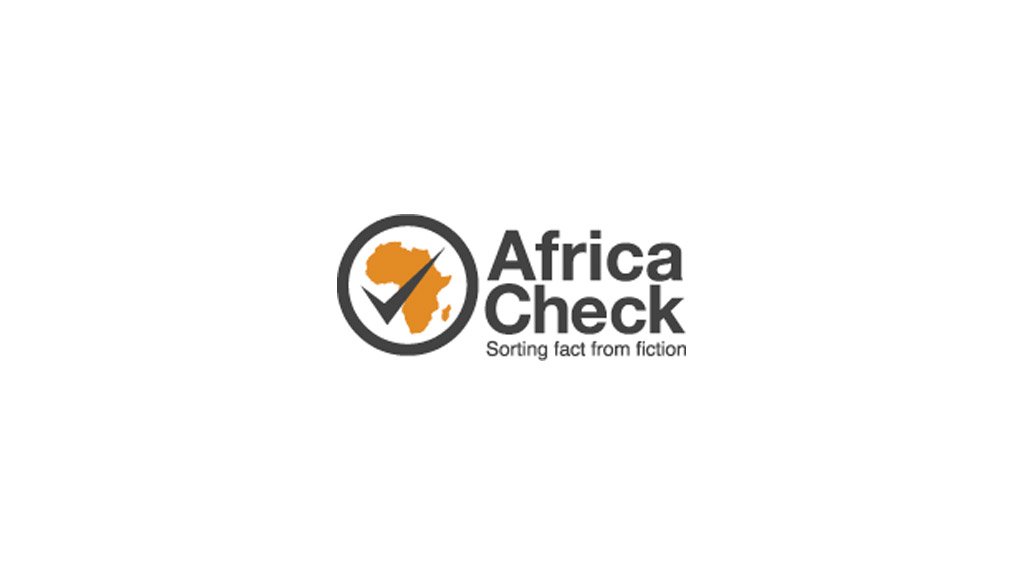South Africa went into lockdown on 27 March 2020, as the government tries to control the spread of the new coronavirus. There are now more than 900 confirmed cases of Covid-19 in the country, with two deaths.
When president Cyril Ramaphosa announced the lockdown he said “immediate, swift and extraordinary action is required if we are to prevent a human catastrophe of enormous proportions”.
But the City of Ekurhuleni’s executive mayor, Mzwandile Masina, had another solution to the pandemic. In his 18 March state of the city address, he proposed using the municipality’s emergency funds “to procure the vaccine Inferon B from Cuba”.
Masina did not respond to our numerous requests for evidence of a “vaccine”. So Africa Check went looking.
Currently no vaccine for Covid-19
Vaccines are a treatment to prevent disease, explains the US Centers for Disease Control and Prevention. “Vaccines contain the same germs that cause disease … But they have been either killed or weakened to the point that they don’t make you sick.”
The CDC adds: “A vaccine stimulates your immune system to produce antibodies, exactly like it would if you were exposed to the disease. After getting vaccinated, you develop immunity to that disease, without having to get the disease first.”
According to the World Health Organization, there are still “no specific vaccines or treatments for Covid-19”.
“Possible vaccines and some specific drug treatments are under investigation. They are being tested through clinical trials. WHO is coordinating efforts to develop vaccines and medicines to prevent and treat Covid-19,” says the organisation.
Infectious disease specialist Dr Evan Shoul, who practices at Milpark Hospital in Johannesburg, told Africa Check that in the best case scenario a candidate vaccine for Covid-19 is expected in 12 to 18 months.
‘Interferon B’ not a vaccine
Masina referred to “Inferon B” as a vaccine in his speech but an official transcript of the address mentions “Interferon B”.
He also tweeted a photo a few hours before delivering the speech, captioned “Interferon B”, of boxes of interferon alpha-2b. This is a man made form of an interferon, a substance produced in various forms by the human immune system. Interferon alpha-2b is a cytokine.
“That’s a chemical produced by the white blood cells, your immune cells, that helps to protect you against infection including viruses,” said immunologist Dr Elizabeth Mayne, who works at South Africa’s National Health Laboratory Service and the University of the Witwatersrand.
But interferon alpha-2b, according to Mayne, is “definitively not a vaccine”. “There is no good scientific data to show that it will protect you from getting the infection.”
Drug being produced by Cuba
The day before Masina made his claim, Cuba’s foreign affairs ministry released a statement that “there is no preventive vaccine or specific treatment, at this time, for the new coronavirus”.
It said, however, that it was producing interferon alpha-2b “in addition to another group of drugs that are included in protocols for treating patients with this disease and the complications that may arise”.
Interferon alpha-2b and other interferons have been used to treat previous strains of coronavirus because of their ability to boost cells’ natural defence mechanisms. They were used during the 2003 severe acute respiratory syndrome (Sars-CoV) outbreak. Sars-CoV is a coronavirus that has been shown to share similarities with the 2019 coronavirus.
But the treatment can have serious side effects. The American Society of Health-System Pharmacists has said: “Almost all patients experience adverse effects at some time during the course of interferon alfa therapy.”
Mayne described the common side effects as: “All of the things that make you feel pretty miserable when you have the flu: the tiredness, the fatigue, not wanting to eat, things like that”. The side effects of interferon therapy mean that “a lot of people actually can’t take it”.
No data to support use of interferons
The online medical tool BMJ Best Practice has stated at time of writing (archive here) that while substances such as interferon alpha are being used to treat the new coronavirus, “there are no data to support their use”. The website is a collection of recommendations compiled by expert medical editors and based on published, peer-reviewed studies.
Current and future clinical trials may show that interferon treatment is effective. But Milpark Hospital’s Shoul said there was no reason for Ekurhuleni to buy the drug, and that it was unlikely to be useful.
Instead, he advised people to follow guidelines from the National Institute of Communicable Diseases. It was important “to have one focal point for information” to make sure that people do not receive conflicting information and become unsure of what to trust.
Mayne had a similar message. “Any misinformation in a crisis is going to be counterproductive,” she said. “It confuses people, and it diverts time away from what we should be concentrating on, which is reinforcing the NICD guidelines.”
Conclusion: Interferon alpha-2b is not a vaccine for the new coronavirus.
South African mayor Mzwandile Masina said in his state of the city address that there was a “vaccine” for Covid-19 called interferon alpha-2b.
This is incorrect – the drug is not a vaccine that would prevent Covid-19. It has been used to treat previous strains of coronavirus. While it is being considered as a possible treatment for the new virus there are no definitive results from clinical trials.
The World Health Organization says there are currently “no specific vaccines or treatments for Covid-19.” Possible vaccines and drug treatments are being tested in clinical trials.
It’s important that we only get information on Covid-19 and its treatments from credible sources. These include the World Health Organization and, in South Africa, the Department of Health, the National Institute of Communicable Diseases and the official government Covid-19 portal.
Researched by Keegan Leech, Africa Check, a non-partisan fact-checking organisation. View the original piece on their website
EMAIL THIS ARTICLE SAVE THIS ARTICLE
To subscribe email subscriptions@creamermedia.co.za or click here
To advertise email advertising@creamermedia.co.za or click here











